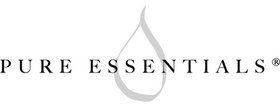Nutritional Genetics Test FAQ
Nutritional Genetics Test
Frequently Asked Questions
Why take the Nutritional Genetics Test?
Genetic testing provides a blueprint to your body. While one cannot change their genes, one can create lifestyles that honor their genes. Use this genetic test as a means to understand what nutrient deficiencies and dietary sensitivities you may be prone to developing.
What are the differences between genetic testing companies?
This product tests genes that have proven to be connected to your daily wellness routine. Whether it is a vitamin need, how you metabolize carbs and fats, or if you are sensitive to gluten and pesticides, we only test those genes that give you actionable information. Other companies may test your entire genome, ancestry, paternity, or disease-oriented mutations. Those are all beneficial tests if you need that information. However, those areas are not the focus of this test because lifestyle prevention has little to no impact on those results.
What are the methods and limitations of this test?
Mass spectrometry is used to extract genetic material from your provided sample. High levels of specificity and sensitivity are used to pull the necessary information. Unfortunately, genetic material can be degraded if one consumes citrus or dairy products within an hour of performing the cheek swab. If the genetic material appears to be less than desirable in the sample, a re-swab may need to be collected. This test is also limited in the sense that it is only looking at the 40+ genes stated in the report. No additional information is pulled beyond what is listed in the report. There is no raw data file available beyond this report.
How do I use this information?
As stated before, genetic testing may allow you to honor your potential. Take this information and follow the action steps outlined in the report for wellness routines. If you have specific medical needs, please take this information to your healthcare provider and pair it with other types of testing. This information is not, however, intended to diagnose, treat, cure, or prevent any type of disease and is not regulated by the FDA. This test should be considered an educational tool, not a diagnostic one.
Is your lab CLIA certified?
Each genetic sample is analyzed at a CLIA and CAP certified lab.
Why don’t you put words such as wild type or homozygous in your report?
While it is common nomenclature to use the terms "wild type," "heterozygous," and "homozygous" when reporting results, it could ultimately be a disservice to you in understanding the allele changes. These terms have often been used to describe good or bad results from variations, rather than give you a proper view of allele function. Instead, your allele is simply reported and the concerns (or lack thereof) associated with it.
What resources do you use to create your report?
DbSNP is used as the guide for alleles, and a database of peer reviewed literature is used to guide the recommendations included in your report. https://www.ncbi.nlm.nih.gov/snp/
Learn more about the individual genes that are getting tested: Nutritional Genetics Gene Descriptions.
Have another question?
Email us at geneticstest@pure-essentials.com and we'll get you an answer as quickly as possible!


